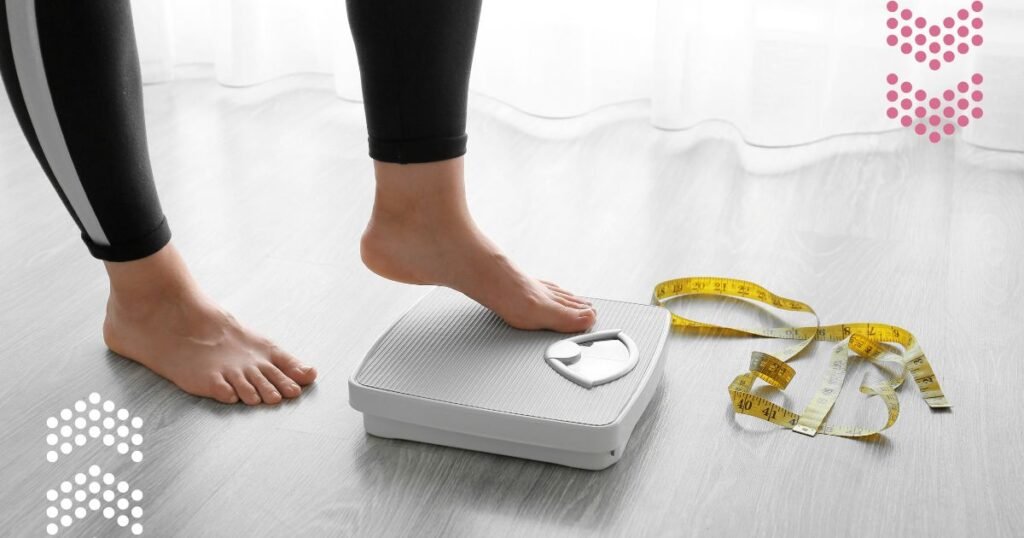Hormonal Changes with Age in Women: Understanding Weight Management Challenges
As women age, they experience various hormonal changes that impact their health, particularly their weight. Hormones like estrogen, progesterone, and thyroid hormones play vital roles in how a woman’s body manages fat, muscle mass, and energy levels. These changes can lead to weight gain, shifts in fat distribution, and slower metabolism. Understanding these hormonal fluctuations is essential to navigate health and fitness effectively as women age.
This article covers the major life stages and their hormonal impacts on weight, from menopause to postpartum weight retention and thyroid function. By learning how these factors influence weight gain, women can adopt strategies to stay healthy and fit, no matter their age.
Hormonal Shifts Across Different Life Stages in Women
Throughout a woman’s life, various hormonal stages affect how the body handles weight. Puberty introduces a significant change in hormone production, which regulates body fat and energy usage. Pregnancy and the postpartum period bring another wave of hormonal fluctuations, while menopause later in life leads to substantial changes in how the body stores and burns fat. Even subtle shifts in hormone levels can have profound effects on weight management.
The key hormones involved in these changes include estrogen, progesterone, and thyroid hormones. Estrogen, for instance, helps regulate fat distribution, while thyroid hormones control the rate at which the body metabolizes calories. Fluctuations in these hormones can make it difficult for women to maintain a steady weight.
Menopause and Its Impact on Women’s Weight
What is Menopause?
Menopause is a natural biological process that occurs when a woman’s menstrual cycles permanently cease. It typically occurs between ages 45 and 55, though it can start earlier or later. Menopause is accompanied by a significant reduction in estrogen and progesterone levels, which directly influence metabolism, fat storage, and muscle mass. With the reduction of these hormones, women often notice changes in their bodies, particularly weight gain.
How Hormonal Decline Affects Weight
The hormonal decline during menopause results in a slower metabolism. Estrogen plays a role in regulating fat distribution, and as its levels drop, fat tends to accumulate more in the abdominal area. This is why many women experience a shift toward belly fat post-menopause. Additionally, lower estrogen levels affect muscle mass, which further slows metabolism, making it easier to gain weight and harder to lose it.
Alongside the metabolic effects, hormonal changes can increase hunger and cravings for sugary or fatty foods. These factors combined often lead to weight gain if dietary and lifestyle habits aren’t adjusted.
Managing Weight During Menopause
Although menopause makes weight management more challenging, adopting specific strategies can help control weight gain. For instance, focusing on strength training is essential during this time because it helps preserve muscle mass, which maintains metabolic rate. Regular exercise, particularly resistance training, is critical for combating the muscle loss associated with reduced estrogen levels.
In addition, a balanced diet rich in protein, healthy fats, and fiber can support metabolism and reduce cravings. Increasing protein intake helps women maintain muscle mass, while fiber aids digestion and keeps you feeling full for longer. Incorporating foods like lean meats, legumes, and whole grains can significantly benefit women during menopause.
Some women may also consider hormone replacement therapy (HRT) as a way to manage menopausal symptoms, including weight gain. However, it’s important to consult a healthcare professional to weigh the risks and benefits before starting HRT.
To dive deeper into the topic, check out this detailed guide on menopause and its impact on weight.
Postpartum Weight Retention in Women
The Role of Hormones During and After Pregnancy
Pregnancy leads to dramatic hormonal shifts in a woman’s body. Estrogen and progesterone levels rise significantly during pregnancy, and after childbirth, these levels decrease rapidly. The body stores extra fat during pregnancy as an energy reserve for breastfeeding, which is why many women retain weight after delivery.
After childbirth, many women experience changes in hormone levels that influence weight retention. For instance, the hormone prolactin, which supports milk production, also encourages the body to store fat. Although breastfeeding helps burn calories, it can be difficult to lose weight due to fluctuating hormone levels, fatigue, and the demands of caring for a newborn.
Why Postpartum Weight is Hard to Lose
Postpartum weight retention is often difficult to manage due to a combination of hormonal changes, sleep deprivation, and stress. New mothers often experience elevated cortisol levels, the stress hormone, which promotes fat storage, especially around the abdomen. Lack of sleep also disrupts hormone regulation, making it harder to manage hunger and satiety signals.
Another factor that can slow weight loss postpartum is the physical recovery process. The body needs time to heal after childbirth, particularly if there were complications or a cesarean section. During this recovery period, strenuous exercise may be limited, slowing the weight loss process.
Tips for Managing Postpartum Weight
Managing postpartum weight starts with being gentle and patient with your body. It’s important to focus on gradual, sustainable weight loss rather than trying to lose weight too quickly. Breastfeeding mothers, in particular, need to ensure they’re consuming enough calories to support milk production.
Engaging in gentle, postpartum-friendly exercises like pelvic floor exercises and walking is a great way to begin the recovery process. As the body heals, gradually incorporating more intense exercise like resistance training can help boost metabolism and aid in weight loss.
For more guidance on managing postpartum weight retention, visit our in-depth article on postpartum weight.
Thyroid Function and Weight in Women
What is the Thyroid and Its Role in Metabolism?
The thyroid gland plays a crucial role in regulating metabolism by producing hormones such as triiodothyronine (T3) and thyroxine (T4). These hormones influence how the body converts calories into energy. When thyroid function declines, the body’s metabolic rate decreases, leading to weight gain.
Thyroid issues are more common in women than men, especially as they age. An underactive thyroid, or hypothyroidism, slows metabolism and causes a range of symptoms, including fatigue, weight gain, and sensitivity to cold.
Hypothyroidism and Weight Gain
Hypothyroidism occurs when the thyroid doesn’t produce enough hormones to maintain a healthy metabolic rate. This condition often leads to weight gain, especially if it goes undiagnosed or untreated. Hypothyroidism makes it difficult for the body to burn calories, even with regular exercise and a healthy diet.
In addition to weight gain, hypothyroidism can cause fatigue, depression, and joint pain, making it harder to stay active and manage weight. Fortunately, hypothyroidism can be diagnosed through blood tests and managed with medication, which helps regulate thyroid hormone levels and improve metabolism.
Strategies for Managing Weight with Thyroid Conditions
Women with thyroid conditions must focus on both medical treatment and lifestyle changes to manage weight effectively. Medication such as levothyroxine is often prescribed to regulate thyroid function. It’s important to follow the treatment plan and monitor thyroid levels regularly.
In addition to medical treatment, dietary changes can support thyroid function. Foods rich in iodine, selenium, and zinc, such as fish, nuts, and seeds, can support healthy thyroid function. Regular physical activity, particularly resistance training and aerobic exercise, can also help manage weight.
To learn more about thyroid health and its impact on weight, explore our detailed guide on thyroid function.
Other Hormonal Influences on Weight With Age
Insulin Resistance in Women
As women age, they become more susceptible to insulin resistance, which occurs when the body’s cells become less responsive to insulin, the hormone that helps regulate blood sugar levels. Insulin resistance can lead to increased fat storage, particularly around the abdominal area, and can contribute to the development of type 2 diabetes.
Women with insulin resistance may experience weight gain, especially around the waist. Managing insulin resistance requires a combination of dietary changes, such as reducing refined sugars and carbohydrates, and increasing physical activity to improve insulin sensitivity.
Cortisol and Stress in Aging Women
Cortisol is a hormone produced in response to stress. Chronically high cortisol levels can lead to increased fat storage, especially around the abdomen. Aging women often face higher stress levels due to various life factors, which can exacerbate weight gain.
Managing cortisol levels is essential for maintaining a healthy weight. Practices such as yoga, meditation, and adequate sleep can help reduce stress and lower cortisol. Reducing caffeine and adopting a balanced diet can also support healthy cortisol levels.
For more information on how stress impacts women’s health, visit Harvard’s health and diet resource.
Key Takeaways for Women of All Ages
Hormonal changes with age are inevitable, but women can manage their weight effectively by understanding how these changes affect their metabolism and fat distribution. Adopting a tailored approach to fitness and nutrition at each life stage, from menopause to postpartum, can make a significant difference in maintaining a healthy weight.
For more insights on the role of hormones in weight management, explore this in-depth guide on hormonal changes.
Conclusion
As women age, the changes in hormone levels can significantly impact weight. However, by understanding these hormonal shifts and adopting appropriate lifestyle strategies, women can navigate these challenges and maintain a healthy weight. Regular physical activity, a balanced diet, and stress management are key to success.
At ShapioX, we offer resources, calculators, recipes, and tailored programs to help women of all ages manage their weight and health. For more information, browse our website to explore everything we have to offer and embark on your health and fitness journey with confidence.
Explore More on ShapioX
Whether you’re managing menopause, dealing with postpartum weight retention, or addressing thyroid-related weight challenges, ShapioX has the resources you need. Our women-only weight loss programs, fitness shop, and comprehensive blog provide support at every stage of your journey. Visit our website today to discover how we can help you achieve your health and fitness goals.


